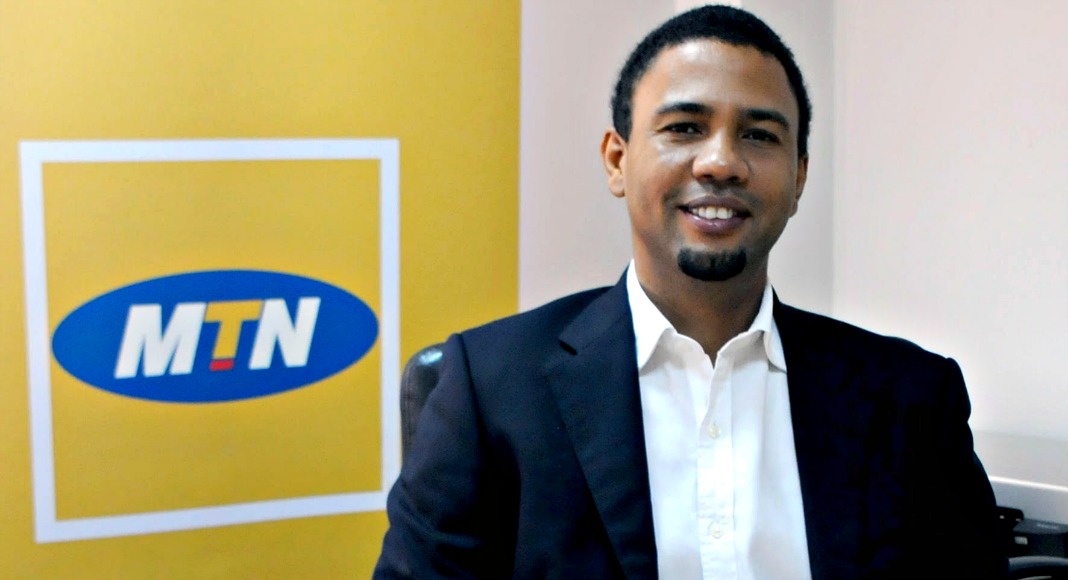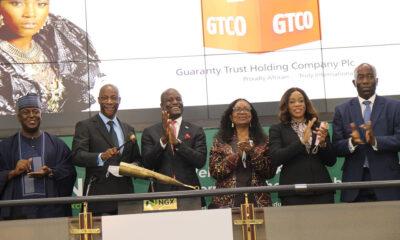MTN Nigeria Communications Plc has added 2 million mobile subscribers to take the company’s total mobile subscribers to 77.6 million in the period ended September 30, according to the company’s latest unaudited financial statement released on Monday.
Also, active data users grew by 13.3% to 43.1 million while active moble money wallets expanded by a whopping 53.1% to 3.6 million.
Similarly, service revenue increased by 21.4% to N1.8 trillion. Earnings before interest, tax, depreciation and amortisation (EBITDA) grew by 16.3% to N907.9 billion.
The company’s EBITDA margin decreased by 2.4 percentage points to 51.2%.
However, loss due to foreign exchange differential dragged profit before tax down by 42.0% to N232.5 billion from N465.3 billion recorded before it was adjusted for the foreign exchange loss.
Earnings per share (EPS) decreased by 45.2% to N7.06 kobo (up 5.2% to N14.50 kobo adjusted for the forex loss).
The telecommunication giant capital expenditure increased by 6.9% to N405.0 billion.
Commenting on the company’s performance, Karl Toriola, MTN Nigeria CEO said “The operating conditions in the first nine months of 2023 remained tough. This was in line with expectations following the removal of the fuel subsidy, the currency devaluation due to the liberalisation of foreign exchange (forex) management and the impact of the 2023 Finance Act.
“In the near term, consumer spending power has been diminished by the upward pressure on overall inflation. This was exacerbated by ongoing volatility in the global macroeconomic and geopolitical environment.
“As a result, the inflation rate in Nigeria rose to 26.7% in September 2023, representing the ninth consecutive month-on-month increase in 2023, with a YTD average of 23.3%. In the efforts to curb this trajectory, the Central Bank of Nigeria (CBN) maintained its monetary policy tightening, increasing the monetary policy rate by 2.25pp to 18.75%. This is supported by the Government’s reform programmes aimed at creating an environment that enables businesses to thrive.
“Furthermore, the liberalisation of the forex management in June 2023 resulted in a 68.5% upward movement in the exchange rate from N461/$1 in December 2022 to N777/US$ at the end of September, resulting in higher cost of doing business.
“Driving efficiency in our network As we navigate the challenging operating conditions, we continue to invest in our business to strengthen our commercial operations and focus on expense efficiencies to support earnings and cash flow generation. As part of our proactive initiatives to curb the impacts of the macro volatility on our business, we have re-allocated the leases for towerco services of approximately 2.5k network sites due to expire in 2024 and 2025, for which IHS Nigeria Limited (IHS) currently provides tower services.
“After a transparent and competitive tender process, ATC Nigeria Wireless Infrastructure Solutions Limited (ATC) was selected as the preferred tower company to provide tower services to those sites. This is expected to unlock significant network cost efficiencies on the affected sites. We have an additional ~12k sites within the broader IHS portfolio, expiring variously between 2025 and 2029, with the majority expiring in 2029.
“MTN Nigeria will continue to engage with our tower company partners to explore ways to optimise network costs in line with our expense efficiency programme aimed at improving operating margins.
“For the 2025 portfolio of towers, we will commence our review on that portfolio imminently.
“Following the successful conclusion, in May 2023, of a lease agreement for 900MHz and 1800MHz spectrum from NTEL for a 2-year period, we are pleased to have acquired an additional 10MHz frequency division duplex (FDD) in the 2.6GHz spectrum in September 2023.
“These investments enable us to expand the coverage and capacity of our network more efficiently to meet the rising demand for data and improve the quality of our offerings and customer experience.”


 Naira4 weeks ago
Naira4 weeks ago
 Naira4 weeks ago
Naira4 weeks ago
 Travel4 weeks ago
Travel4 weeks ago
 Jobs4 weeks ago
Jobs4 weeks ago
 Naira4 weeks ago
Naira4 weeks ago
 Naira3 weeks ago
Naira3 weeks ago
 Investment4 weeks ago
Investment4 weeks ago
 Travel4 weeks ago
Travel4 weeks ago

























